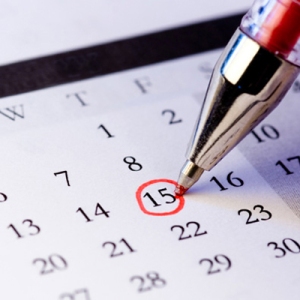Menopausal symptoms affect about 70% of women approaching menopause. Typical menopause symptoms, such as hot flashes or night sweats, are caused by changing hormonal levels in the female reproductive system. Almost all women notice early symptoms while still having periods. This stage of gradually falling and fluctuating hormone levels is called perimenopause, which often begins in the early 40s.










Night Sweats

Night sweats is the evening cousin of hot flashes, but typically more intense. Night sweats, which is also known as "nocturnal hyperhydrosis", isn't actually a sleep disorder, but it is a common perspiration disorder that occurs during sleep.
Irregular Periods, Menstrual Irregularities

Most women experience absent, short, irregular periods at some point in their lives. A wide range of conditions can cause these symptoms, while the most common cause is hormone imbalance. Your periods may come more frequently, every 24 days instead of every 28, or they may come later than they used to. You may have a light period that lasts only a few days, then the next month have very heavy bleeding. Your period may last a shorter amount of time, or go on and on for what feels like an eternity. You may skip a month, then go back to normal for several months, then skip two periods in a row.
Loss of Libido

Sex therapists say tha low libido becomes a problem that should be addressed only when it is perceived as a problem. "It's usually only in the framework of a relationship that it becomes an issue. "It's when there is a discrepancy in desire between the person and partner, or when people feel there's something wrong with them because they have a low level of desire."Everyone experiences peaks and valleys in sexual desire, an ebb and flow in libido that could be caused by any of a variety of factors. Occasionally, a hormonal imbalance or prescription drug will sap sex drive. And, of course, there's a difference between sexual drive and sexual function.
Mood Swings, Sudden Tears

A person with a mood problem is like a human roller coaster. One minute he's up, the next minute he's down. He never seems to be able to get off the ride. His mood swings are intense, sudden and out of control. Chronic and severe mood swings are a psychological disorder, a health problem every bit as real as a physical ailment. In fact, sometimes they're the result of a physical problem, like a premenstrual syndrome. And just like a physical problem, they can be treated. You should contact your doctor to get more advice.
Fatigue

Fatigue, one of the most common menopause symptoms, is defined as an ongoing and persistent feeling of weakness, tiredness, and lowered energy level. This should be distinguished from drowsiness, which implies an actual urge to sleep. Fatigue involves lack of energy rather than sleepiness. If the fatigue comes on suddenly, it could be a sign of crashing fatigue.
Menopause Sleep Disorders

If you're waking up a lot at night, tossing and turning, and generally suffering with insomnia, it might be connected with menopause. When you begin going through menopause, you may find that your sleep is less and less restful, when you sleep at all.
Difficulty Concentrating, Disorientation, Mental Confusion

During early menopause, many women are troubled to find they have difficulty remembering things, experience mental blocks or have trouble concentrating. Not getting enough sleep or having sleep disrupted can contribute to memory and concentration problems.
Disturbing Memory Lapses

Memory loss affects most people in one way or another. More often than not, it is a momentary memory lapse; nothing to worry about - it happens to the best of us. However, when memory lapses begin to become a regular occurrence, it is wise to dig a little deeper and seek medical advice.
Dizziness, Light Headedness, Episodes of Loss of Balance

Dizziness is a transient spinning sensation and/or a feeling of lightheadedness or unsteadiness; also, the inability to maintain balance upon standing or walking. Dizziness is a symptom of many medical conditions. There are things that people can do to cope with their dizziness. But if you experience an unexplained dizzy spell, see your doctor, because you can't be sure if it's a trivial problem or a symptom of a serious illness.
Weight Gain during Menopause

Weight gain, specifically a thickening in your middle, is another sign of changing hormones. While a number of books and doctors claim that menopause has nothing to do with weight gain, that weight gain occurs in menopausal women because they're older and their metabolism is slowing down, other studies indicate that hormone levels are tied to weight gain and redistribution of fat.
No comments:
Post a Comment